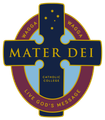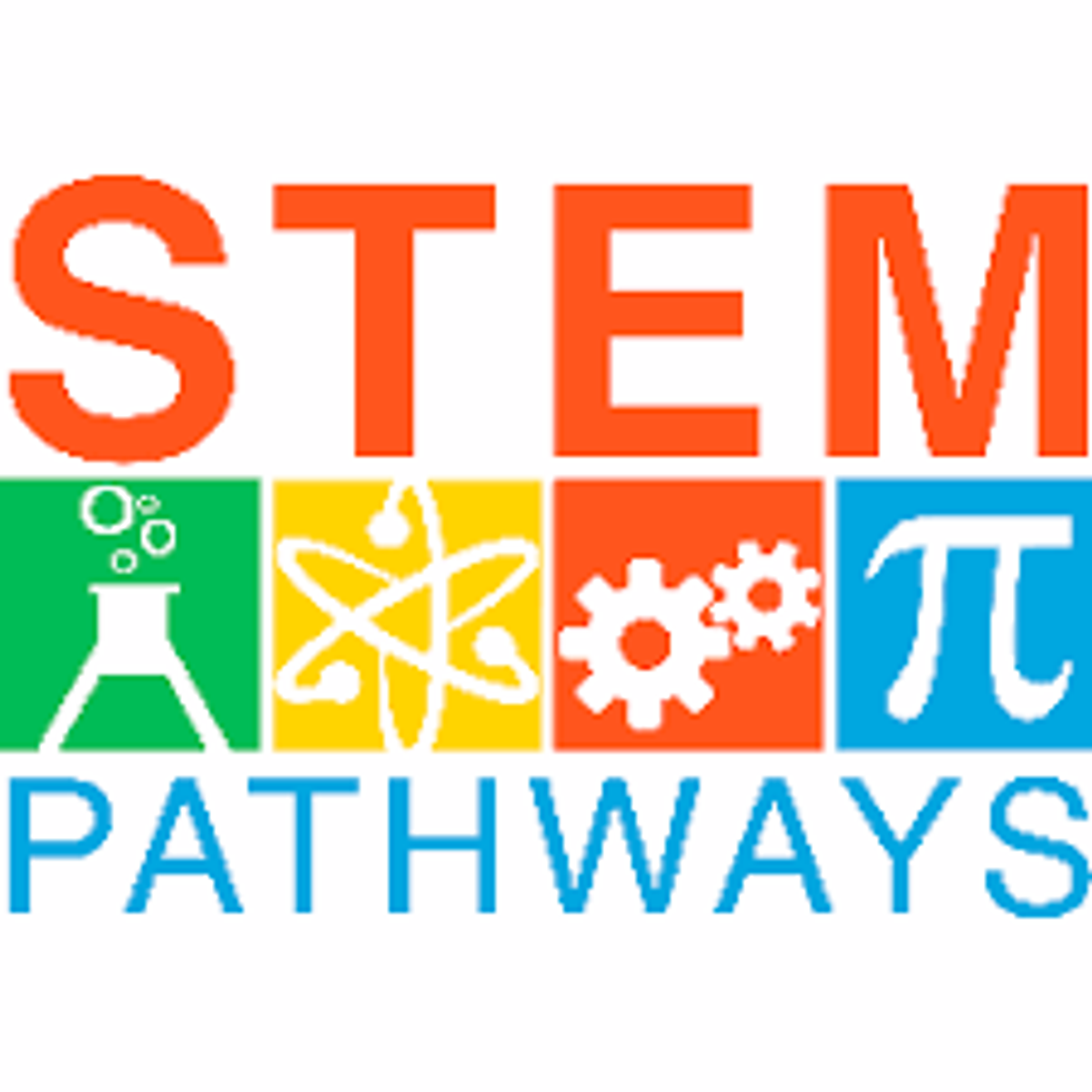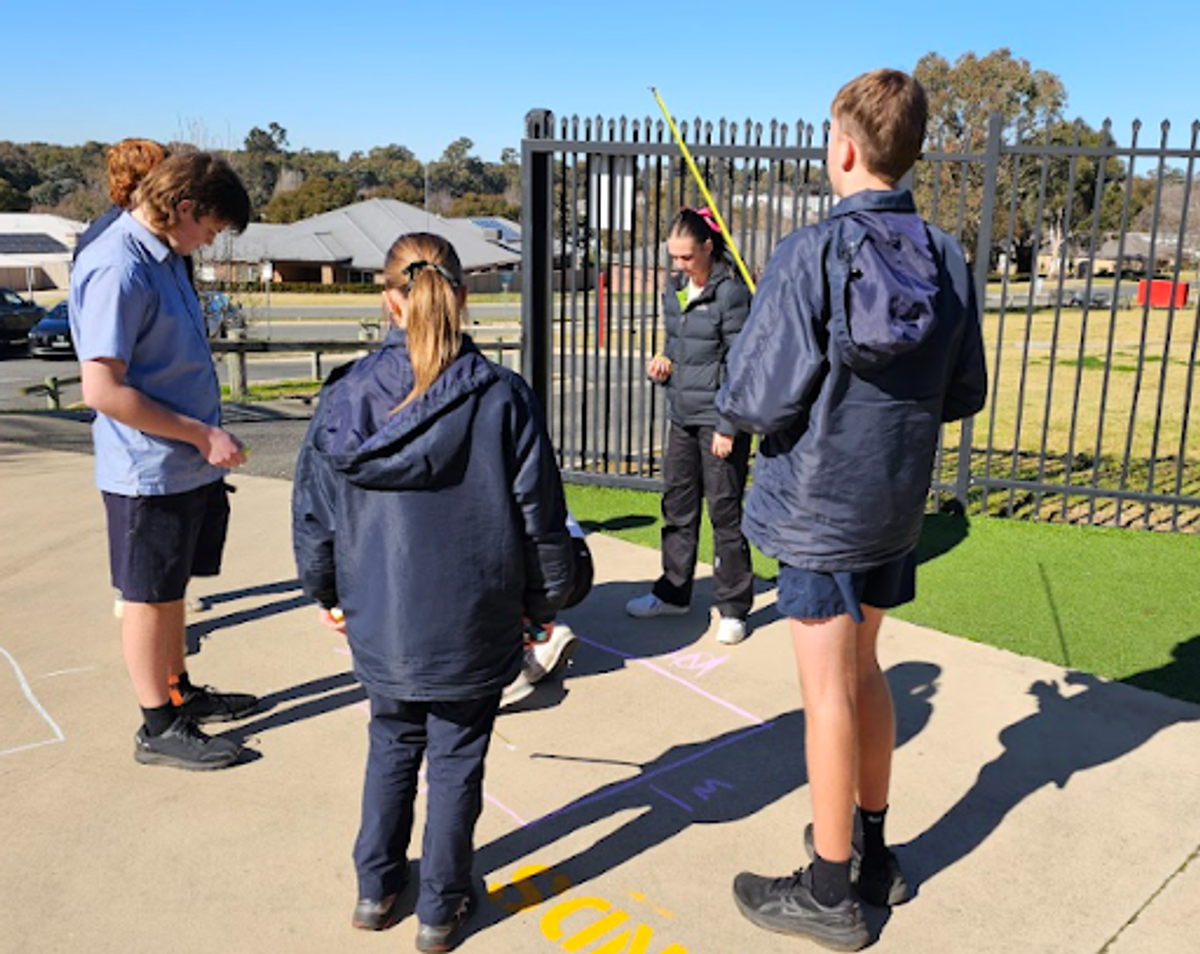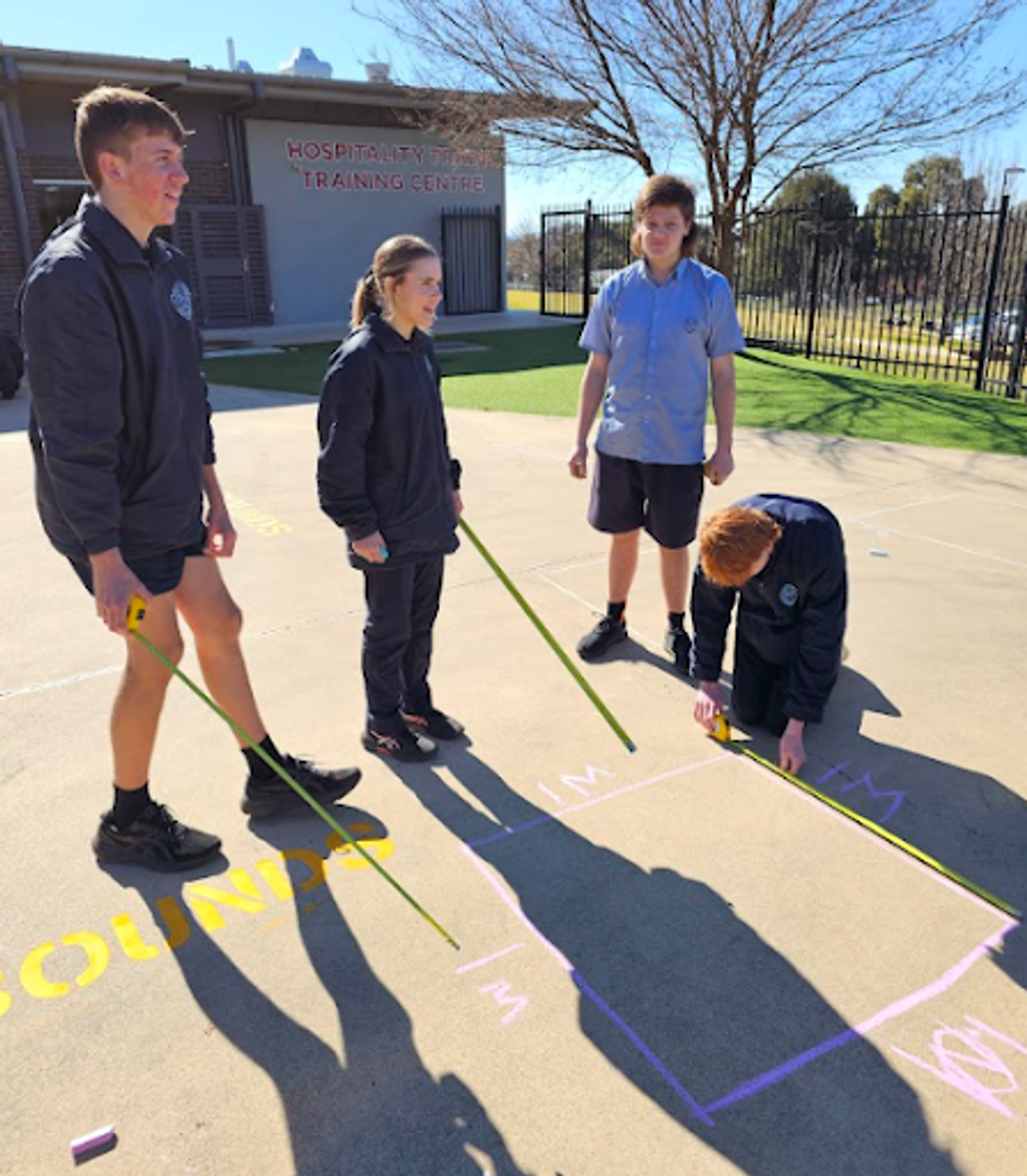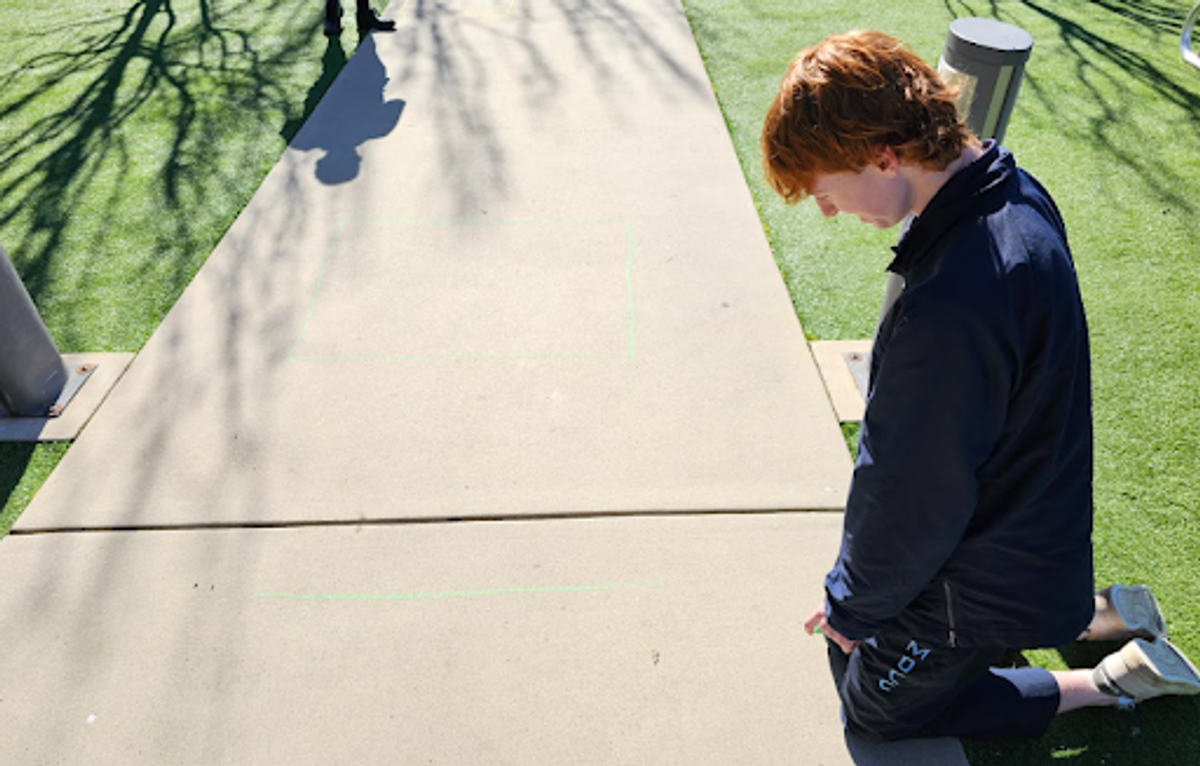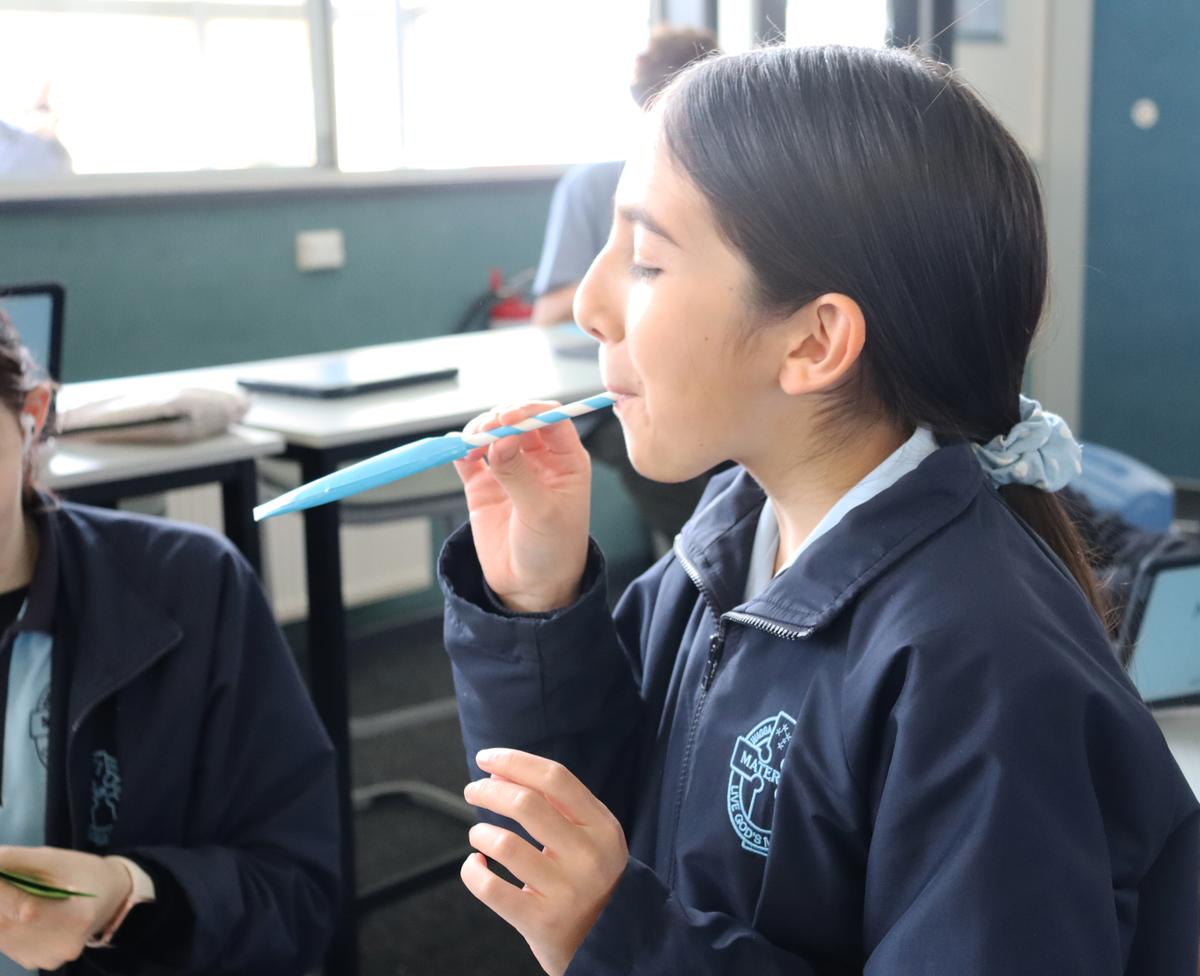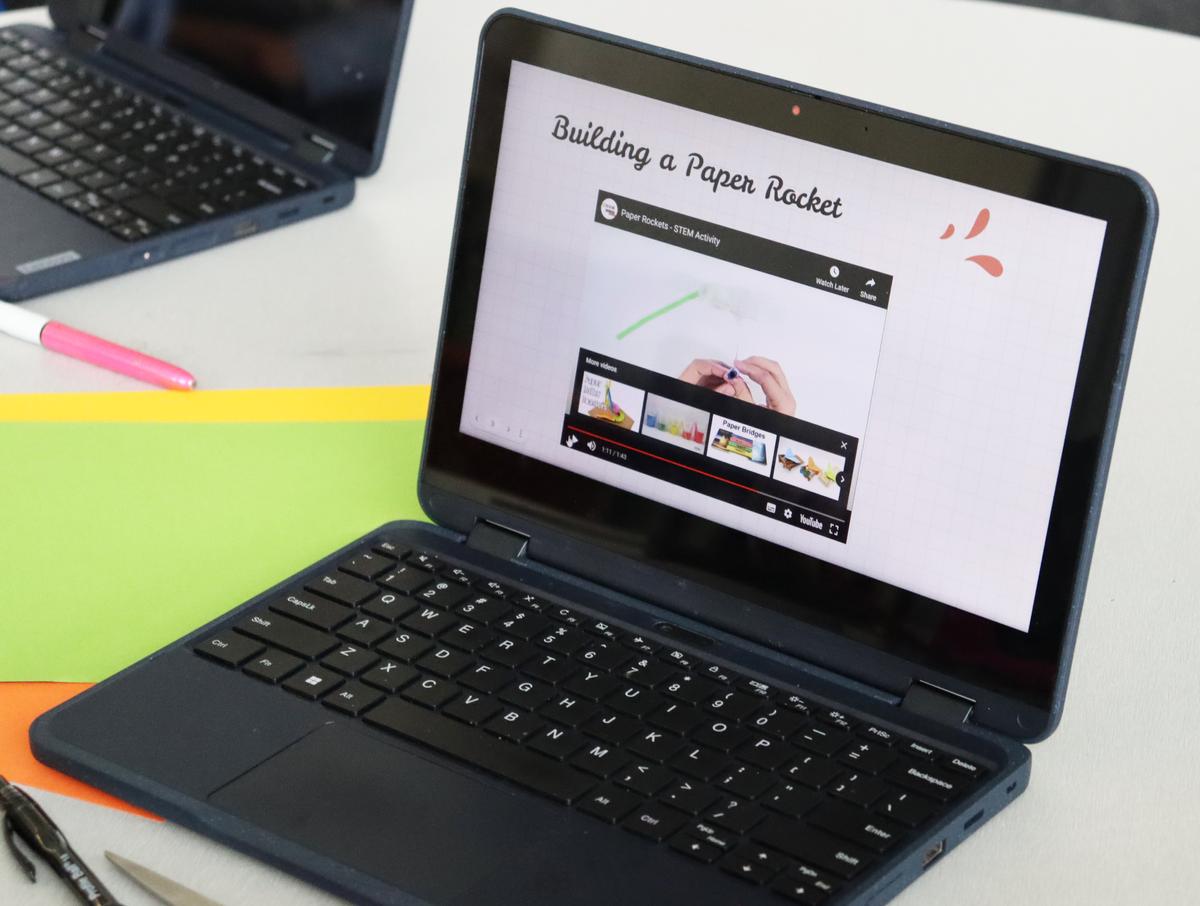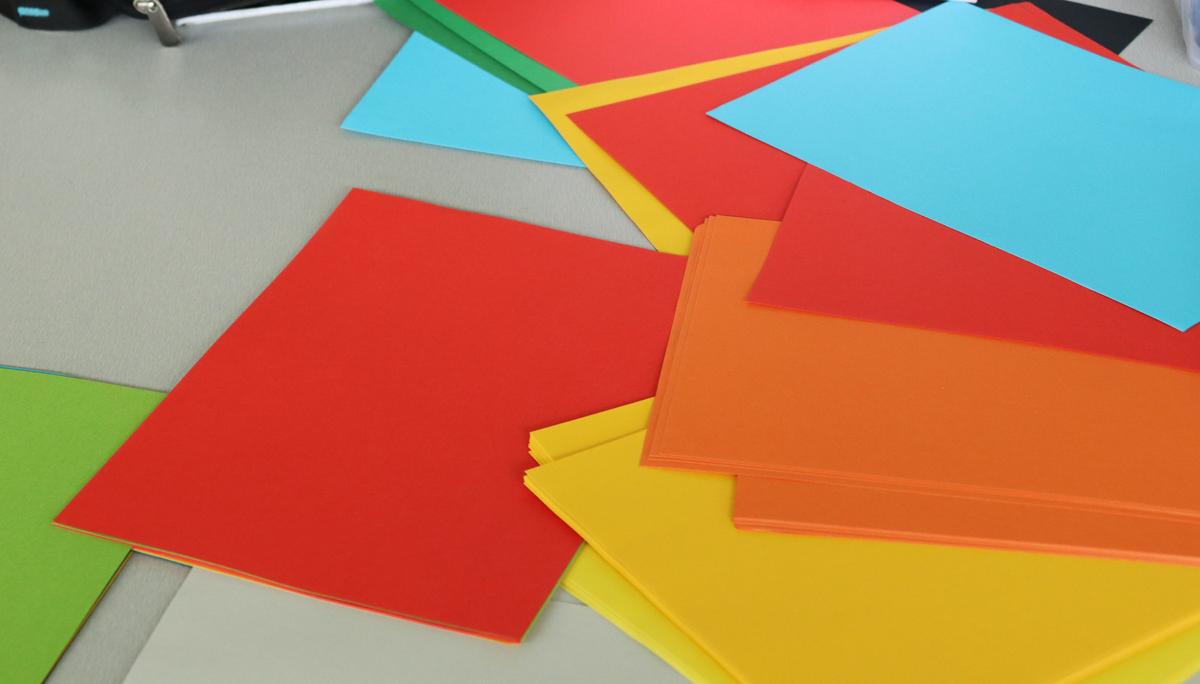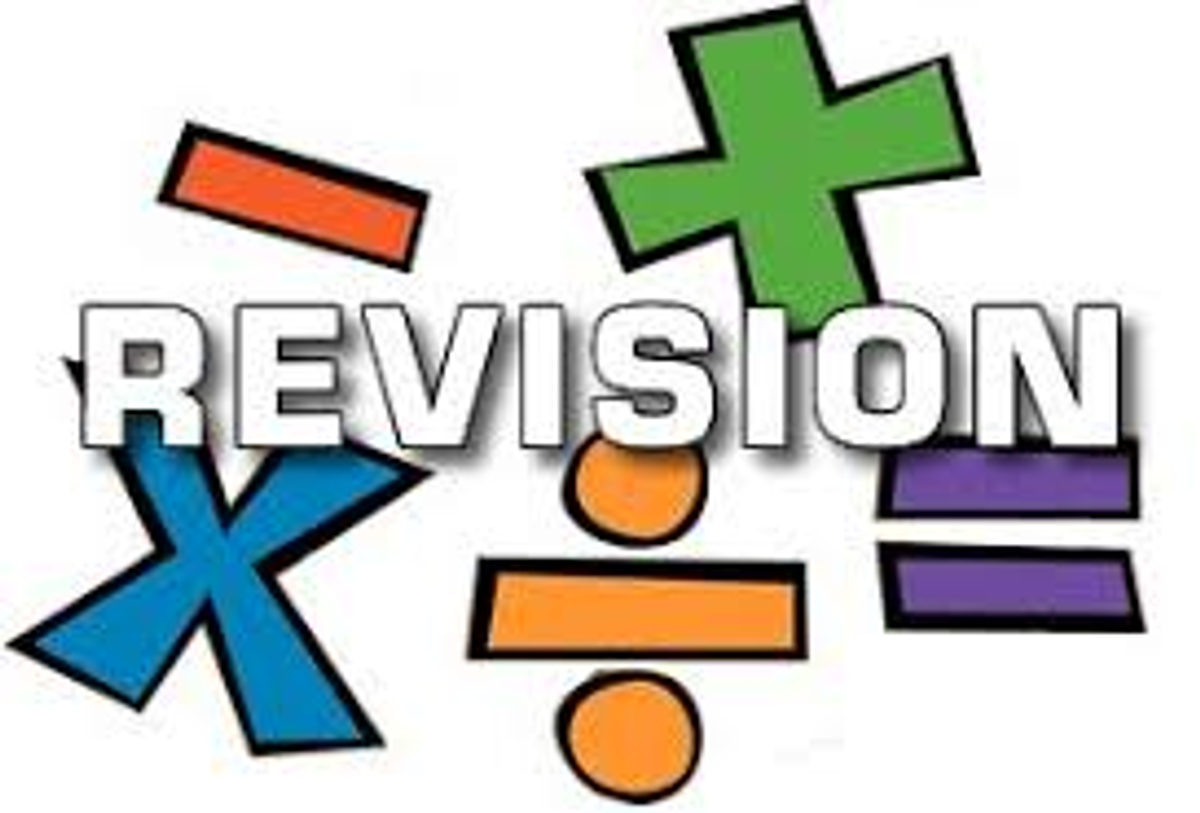Mathematics
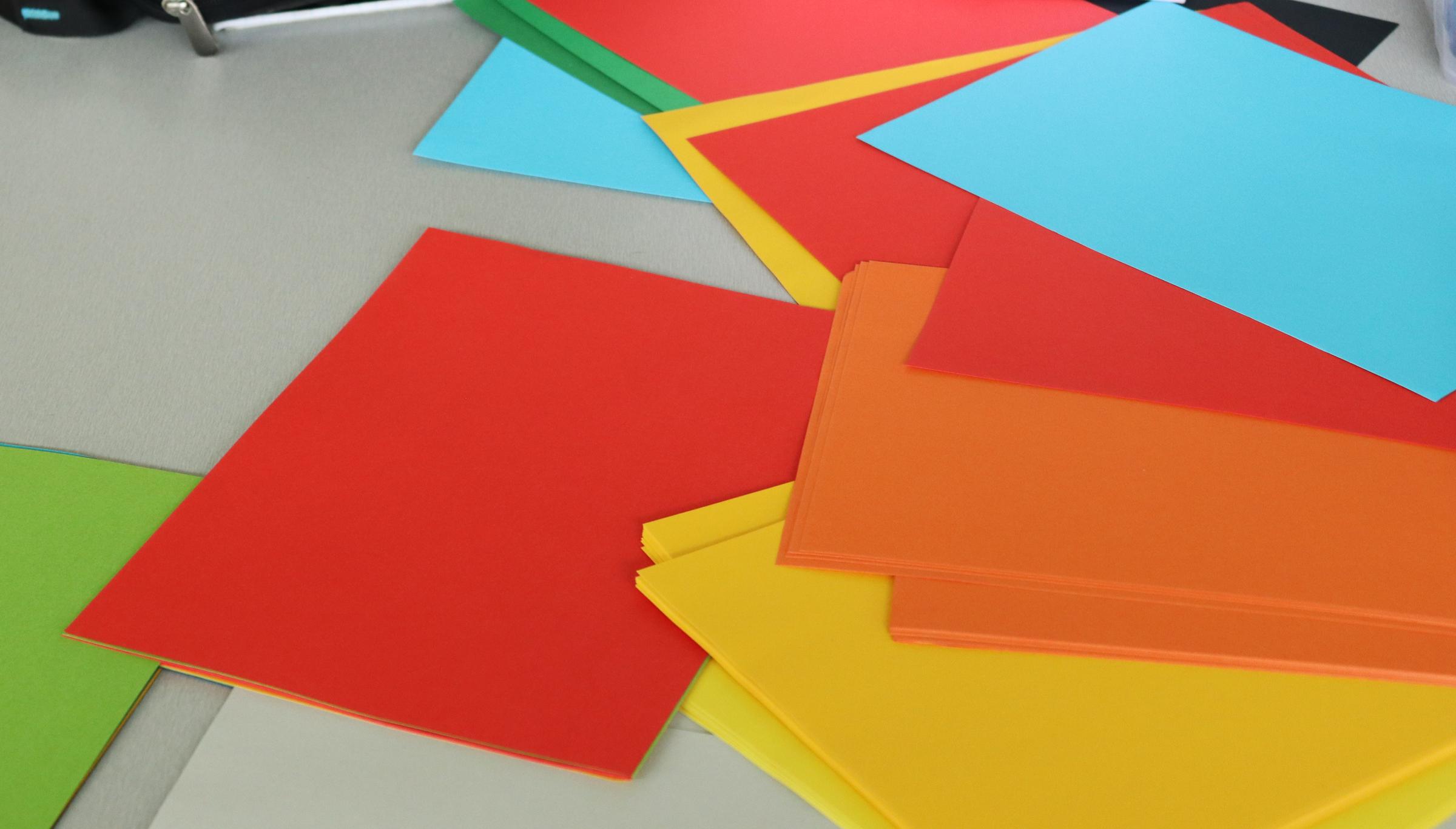
Students in the Year 9 STEM Pathway course have been looking at how concepts of Measurement are incorporated into life all around us. More specifically, they have been:
- examining distances from Earth to other planets in Scientific Notation
- measuring distances around the College and converting them to different units
and they are now in the initial phases of looking at constructing a Model Tiny House.
Below are some action photos of students trying to determine the size of a square metre:-
Rich Tasks are activities that students in Year 7 and 8 participate in that focus on Working Mathematically. They are learning tasks that are accessible to all students and have multiple entry and exit points. They focus on things beyond curriculum dot points, including problem solving strategies, mathematical discussion and critical thinking. These lessons take place once per fortnight.
During rich lessons students work collaboratively, while teachers lead and direct the lesson. Below are some photos of Rich Tasks in action:
A question from parents that is often posed to Mathematics teachers at Mater Dei is ‘How can I best support my child to study Mathematics?’. There is no simple answer to this question. Studying mathematics effectively requires a combination of planning, active engagement, and consistent practice. Here are some tips for students:
- Understand the Basics: Make sure you have a strong grasp of fundamental concepts before moving on to more complex topics.
- Create a Study Plan: Set specific goals and a timetable for your study sessions. Break down your study material into manageable chunks and allocate time for each topic.
- Active Engagement: Don’t just passively read through your notes or textbooks. Work through examples, solve problems, and try to explain concepts in your own words. This is best done by using your LEARNING LOGS.
- Practice Regularly: Mathematics requires consistent practice. Work on problems daily to reinforce your understanding and improve problem-solving skills.
- Work on Weak Areas: Identify topics you find challenging and focus extra time on those areas. Seek help from teachers, tutors, or classmates if needed.
- Practice Problem-Solving Techniques: Familiarize yourself with different types of problems and practice various problem-solving strategies. This includes working on past exam papers and sample questions.
- Stay Organized: Keep your notes, textbooks, and assignments well-organized. A tidy study environment can help you focus better.
- Stay Positive and Persistent: Maintain a positive attitude towards math. Don’t get discouraged by mistakes; instead, view them as learning opportunities. Persistence is key.
By incorporating these strategies, students can enhance their understanding of mathematics and improve their performance.
Mr Kurt McPherson | KLA Leader of Mathematics
